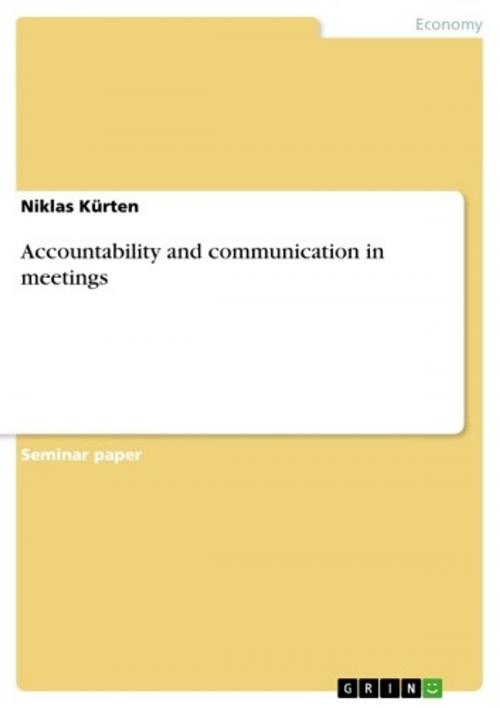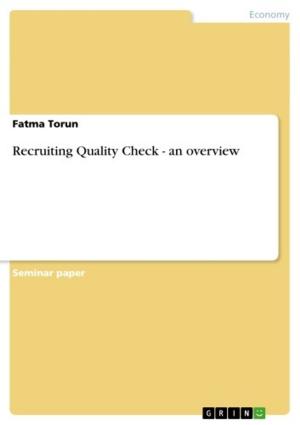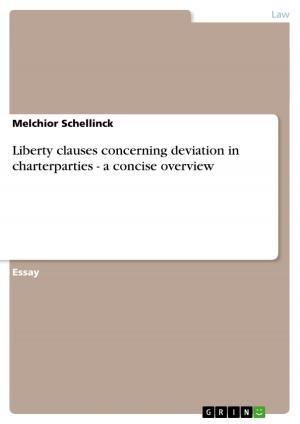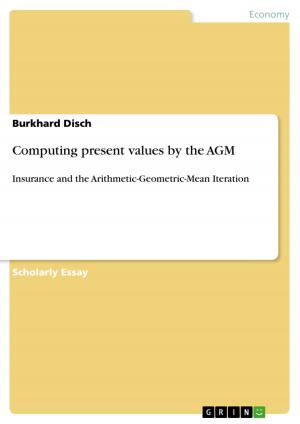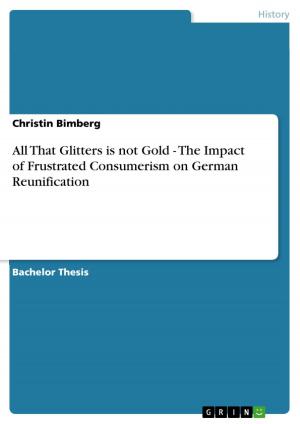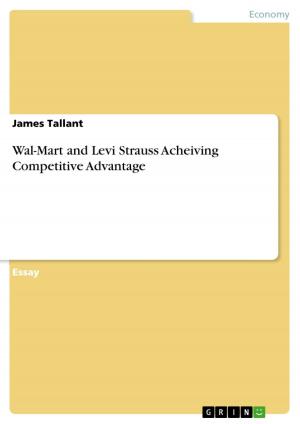Accountability and communication in meetings
Business & Finance, Human Resources & Personnel Management| Author: | Niklas Kürten | ISBN: | 9783638897785 |
| Publisher: | GRIN Publishing | Publication: | January 24, 2008 |
| Imprint: | GRIN Publishing | Language: | English |
| Author: | Niklas Kürten |
| ISBN: | 9783638897785 |
| Publisher: | GRIN Publishing |
| Publication: | January 24, 2008 |
| Imprint: | GRIN Publishing |
| Language: | English |
Seminar paper from the year 2006 in the subject Business economics - Personnel and Organisation, grade: 1,7, Göteborg University, course: Business Communication, 6 entries in the bibliography, language: English, abstract: In today's complex societies the issue of communication gets one of the most challenging tasks among human beings. Especially in organizations the role of communication has become a key factor of success and gaining competitive advantage. The presence of communication is represented in every level of a company, ranging from the enterprise to the functional level. Meetings are used as intermediaries to find ways through implement company missions and visions from the strategic to the operational level. The following meeting arranged by the management is intended to involve all consultants to participate and take responsibility of increasing assignments but Göran is in argument with Torbjörn and MD Bertil. Torbjörn and Bertil expect Göran not only to arrange a LOOP-seminar and write sales letters about LOOP, which is what he proposed on the meeting, but also to take the responsibility of sending letters in addition to the general letter. The intentions of Bertil and Torbjörn were to get everyone to participate and to take on responsibility for increasing assignment, as well as to result in more sales initiatives. The goal of the following paper is to analyze the above mentioned meeting and its outcome out of two different perspectives. To reach this goal, first the problems during the meeting as well as the roles of the participants in the meeting are described, analyzed, and interpreted out of a perspective which focuses on the decision-making process itself. Second, several recommendations to improve the way of making decisions and the effectiveness of meetings are provided. Third, an analysis of the meeting with the focus on the use of accounts during the discussion is provided before ending with the conclusions. Additionally, it can be remarked that the analysis is mainly based on the theory of the textbook 'organizational communication' written by Katherine Miller as well as the literature provided in the task.
Seminar paper from the year 2006 in the subject Business economics - Personnel and Organisation, grade: 1,7, Göteborg University, course: Business Communication, 6 entries in the bibliography, language: English, abstract: In today's complex societies the issue of communication gets one of the most challenging tasks among human beings. Especially in organizations the role of communication has become a key factor of success and gaining competitive advantage. The presence of communication is represented in every level of a company, ranging from the enterprise to the functional level. Meetings are used as intermediaries to find ways through implement company missions and visions from the strategic to the operational level. The following meeting arranged by the management is intended to involve all consultants to participate and take responsibility of increasing assignments but Göran is in argument with Torbjörn and MD Bertil. Torbjörn and Bertil expect Göran not only to arrange a LOOP-seminar and write sales letters about LOOP, which is what he proposed on the meeting, but also to take the responsibility of sending letters in addition to the general letter. The intentions of Bertil and Torbjörn were to get everyone to participate and to take on responsibility for increasing assignment, as well as to result in more sales initiatives. The goal of the following paper is to analyze the above mentioned meeting and its outcome out of two different perspectives. To reach this goal, first the problems during the meeting as well as the roles of the participants in the meeting are described, analyzed, and interpreted out of a perspective which focuses on the decision-making process itself. Second, several recommendations to improve the way of making decisions and the effectiveness of meetings are provided. Third, an analysis of the meeting with the focus on the use of accounts during the discussion is provided before ending with the conclusions. Additionally, it can be remarked that the analysis is mainly based on the theory of the textbook 'organizational communication' written by Katherine Miller as well as the literature provided in the task.
